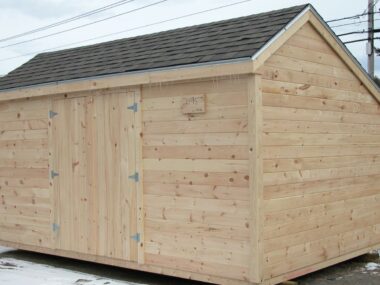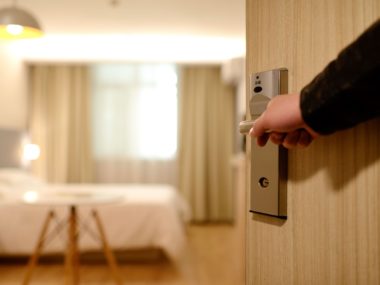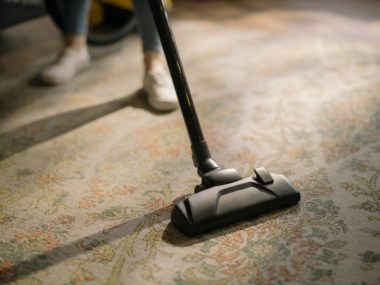Choosing the right HVAC (Heating, Ventilation, and Air Conditioning) system for your home is a critical decision that impacts your comfort, energy consumption, and overall living experience. The correct HVAC system ensures that your home stays warm in the winter and cool in the summer and maintains good indoor air quality year-round.
With numerous options available in the market, making an informed decision can be challenging. In this guide, we’ll explore the key factors to consider when selecting an HVAC system, helping you make the best choice for your home and needs. Understanding these elements is essential if you’re looking to take your HVAC prep to the next level.
Understanding HVAC System Types
The first thing a person needs to do to make the correct decisions is learn more about the systems available on the market. It is important to note that various types of HVAC systems and each has its characteristics. The most common types include:
- Split Systems: These are the most traditional and widely used systems of all the existing types of ILS. They are made of an external component containing a compressor and condenser and an internal component containing an evaporator. They are further classified according to the number of stages, namely single-stage, two-stage, and variable-frequency systems. The comfort levels associated with them are different, as are the efficiency levels.
- Ductless Mini-Split Systems: These are perfect for homes without duct systems or those with ducts but are too small for central air conditioning systems. They mainly include an outdoor unit and one or more indoor units, which can be installed in various rooms. Ductless systems are very energy efficient and also come with zoning capability, thus allowing the temperature to be regulated in different rooms.
- Heat Pumps: Heating and cooling equipment are also available as heat pumps that heat and cool the building. They operate based on exchanging heat between the interior and exterior environments. There are basic models called air source heat pumps and advanced models called ground source heat pumps or geothermal heat pumps, which can provide more efficient heating and cooling but at a higher installation cost.
- Packaged Systems: These systems have heating and cooling elements that are installed outside the home, which can be beneficial for those who are short on space. Air-side systems, also known as packaged systems, are mostly applied in regions that experience relatively high temperatures.
- Hybrid Systems: A heat pump with a furnace is a perfect example of a hybrid system where one can bypass the other depending on the prevailing temperatures and efficiency.
Factors to Consider When Choosing an HVAC System
Choosing the right HVAC system must consider the following factors to suit the client’s needs. Here are some essential considerations:
Home Size and Layout
In-home automation, the size and nature of the house dictate which HVAC system to install or use. If the system is too small, the air will not circulate effectively and warm the space as it should, while if the system is too large, the unit will constantly shut off and turn back on, wasting energy and damaging the system. An experienced HVAC contractor can calculate load to establish the appropriate system size that your home requires, given the size and construction, including the number of windows and ceiling height.
Climate and Efficiency
The region where you are located plays a significant role in the type of HVAC suitable for your building. For areas where the climate is cold, a robust heating system must be provided on the inside, while in hot climates, an efficient cooling system must be provided.

Furthermore, the system’s energy efficiency is expressed by its SEER (Seasonal Energy Efficiency Ratio) for cooling and AFUE (Annual Fuel Utilization Efficiency) for heating. Higher ratings mean that the devices used to contribute to the energy are more efficient and, therefore, can help to save on energy bills and reduce the environmental impact.
Budget and Long-Term Costs
Of course, start-up costs are also essential, but assessing the lifetime costs of your HVAC system maintenance and operation is crucial. High-efficiency systems are likely to be more costly than traditional ones, but they prove helpful when saving on energy costs. Further, it is necessary to consider how much it will cost to maintain, how many times it can be repaired, and how long the system can be used. The right solution can give a good ROI in the long run while giving business owners and managers confidence in the process.
Indoor Air Quality
The air quality within homes is also an essential factor that can affect the comfort and health of the people living there. Modern HVAC systems provide additional air purification and filtering options, which can make your home environment cleaner by eliminating dust and allergens. If you and those in your family suffer from respiratory problems or allergies, get a system designed to improve the air quality inside your home.
Zoning and Smart Controls
Today, there is an option for zoning and intelligent controls of HVAC systems, which enable one to set different temperatures in diverse regions of his/her house. Zoning systems incorporate several dampers in the ducts that control the flow of air, allowing for individual comfort and energy conservation. Moreover, many smart thermostat systems will enable the user to remotely control the heating and cooling equipment, set programs, and track energy consumption, complementing the convenience of climate control in your household.
Installation and Maintenance
It is advisable to hire a professional to install your air conditioning system since this will ensure that the system is well-installed and can work efficiently and for quite a long time. Consult an HVAC contractor with appropriate experience and good references to guarantee correct installation.

It is also essential that your system be adequately maintained to remain free of any glitches that can hinder its operation. Enrolling in a maintenance program your HVAC company offers is advised, as well as having the equipment checked often, cleaned, and repaired as soon as possible when necessary.
Conclusion
In selecting an HVAC system for your home, there are several factors to consider, including the size of your home, the design of your home, the climate, the cost, and the features you would want in an HVAC system. Understanding the categories of HVAC systems and assessing your needs can help make a proper decision, considering all the necessary factors, such as comfort, efficiency, and costs.
Always consult a professional HVAC contractor for the correct sizing and installation procedures since this system should serve you long. A heating, ventilation, and air conditioning system is one of the best investments one can make in his or her home, as it will ensure everyone in the house is comfortable.





